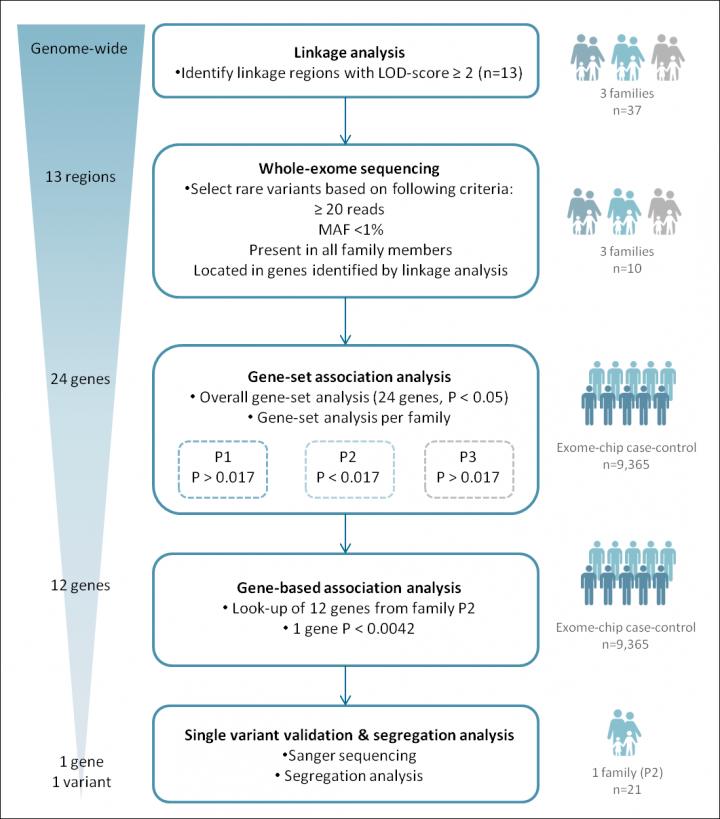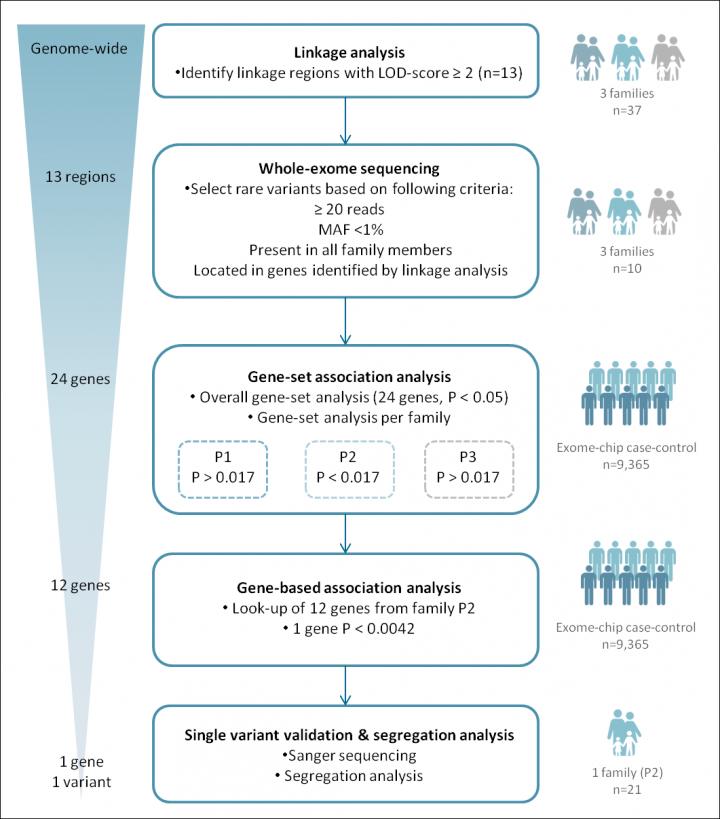
Credit: Corominas et al., 2018, supplementary materials
A team from I.M. Sechenov First Moscow State Medical University together with foreign colleagues analyzed the genomes of several families that have members with ADHD. The results have shown that all patients had specific features in certain genes. The identification of such patterns may help diagnose ADHD. The work was published in the Molecular Psychiatry journal.
ADHD, or attention deficit and hyperactivity disorder, is a common neurodevelopmental disorder with manifestation usually occurring in childhood. According to various sources, this condition affects from 3% to 30% of the population. Children with ADHD are easily distracted, hyperactive and impulsive. ADHD patients may be aggressive and have higher risks for the substance abuse and development of other mental disorders. Only 40% show improvement with age. The pathological mechanisms behind ADHD are still unknown, but scientists prefer the version of joint influence of genetic factors and environmental adversities (e.g., stress or illness of the mother during pregnancy, complications during labor, or diseases suffered in early childhood).
"We believe the development of ADHD may be caused by alterations in the structure of genes encoding proteins which participate in signal transmission in the nervous system using special biologically active substances – neuromediators. In the case of ADHD, the changes affect, among others, serotonin and dopamine pathways in the nervous system that play an important role in the processes of attention, motivation, and learning. The disorder has a complex genetic nature that hasn't been addressed until recently," says Evgeniy Svirin, junior research associate of the laboratory of psychiatric neurobiology at I.M. Sechenov First Moscow State Medical University.
The scientists focused on studying the rare functional variants in whole set of genes in several generations of families with running ADHD. They managed to follow the patterns for certain genes, e.g., AAED1. The protein produced by this gene binds with several other proteins that participate in dopaminergic and glutamatergic transmission. Changes in its activity can potentially influence the excitability of some structures of the central nervous system leading to behavioral alterations. Moreover, to the association with ADHD was discovered for another gene with an unknown function – ATAD2. Notably, these rare variants were also found in ADHD patients outside the studied families. These findings give further evidence for considering them as ADHD risk genes.
"We have discovered new rare functional variants associated with the risk of ADHD development. Our results may be of use for the development of genetic diagnostics methods for this complex disorder. Further studies of the rare AAED1 gene variant on brain development that are already carried out by our joint team with German researchers, may help better understand pathological mechanisms that lead to the occurrence of this disease," concludes Evgeniy Svirin.
###
The work was carried out together with scientists from Germany, the Netherlands, Norway, Spain, and Switzerland.
Media Contact
Nataliya Rusanova
[email protected]
http://www.sechenov.ru
Original Source
https://www.nature.com/articles/s41380-018-0210-6 http://dx.doi.org/10.1038/s41380-018-0210-6





